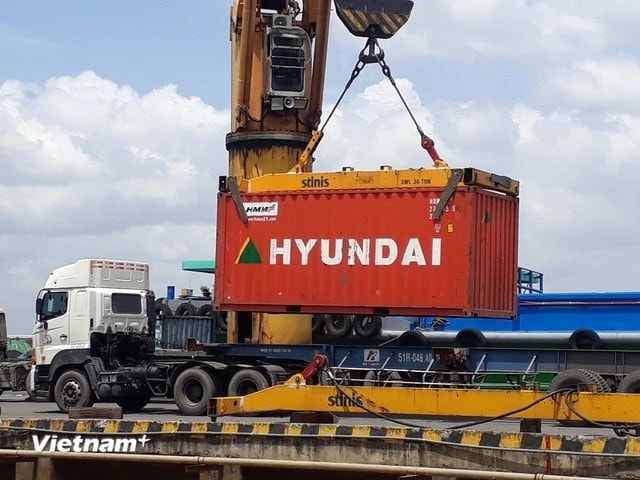The IMF noted that Vietnamese authorities have acted quickly to limit risks in the real estate and corporate bond markets.

The Executive Board of the International Monetary Fund (IMF) has just announced the conclusion of the 2024 Article IV consultation with Vietnam. Accordingly, Vietnam's economy is forecast to grow at 6.1% in 2024.
The IMF Executive Board's Article IV consultation concluded that in a challenging 2023, Vietnam's economy grew by 5% thanks to the Government's drastic policies.
Recovery begins in late 2023, supported by a recovery in exports and tourism, supported by accommodative fiscal and monetary policies. Inflation picks up in 2024, driven mainly by rising food prices, although core inflation remains relatively low and stable. The external current account surplus widens to 5.8% of GDP in 2023, largely due to a significant decline in imports.
Economic growth is forecast to recover to 6.1% in 2024, supported by continued strong external demand, stable foreign direct investment and easing policies. Domestic demand growth is expected to recover gradually as businesses struggle with high debt levels while the real estate market will only fully recover in the medium term. Inflation is expected to hover around the State Bank of Vietnam’s target of 4%-4.5% this year.
However, the IMF directors also noted that downside risks remain high. Exports - the main driver of Vietnam's economy - could weaken if global growth falls short of expectations, global geopolitical tensions persist or trade disputes intensify. Given loose monetary conditions, if exchange rate pressures persist for longer, this could lead to greater pass-through to domestic inflation.

In addition, persistent weaknesses in the real estate and corporate bond markets could have a stronger-than-expected impact on banks’ ability to extend credit, harming economic growth and undermining financial stability.
The IMF Executive Board commended the authorities for their swift actions to maintain macro-financial stability as the post-pandemic economic recovery faces headwinds both domestically and internationally. The IMF noted that risks remain elevated and further efforts are needed to ensure macro-financial stability and deepen reforms to address vulnerabilities and ensure strong, green and inclusive growth over the medium term. Continued capacity building will be important to support reforms.
As fiscal space remains large while monetary policy easing remains relatively limited, the IMF recommends that Vietnam should put fiscal policy at the forefront of supporting production activities and economic recovery.
The IMF welcomed the authorities’ plans to accelerate public investment, which will require addressing bottlenecks, and stressed the importance of expanding social safety nets to support the most vulnerable.
The IMF commended the authorities for their effective management of inflation risks, but stressed that monetary policy should remain prudent in a complex environment with limited policy space. The IMF also welcomed the moves toward greater exchange rate flexibility and recommended continued progress in this area, along with the modernization of the monetary policy framework.
In addition, the IMF Executive Directors stressed the importance of strengthening the resilience of the financial system by strengthening capital buffers, phasing out debt rescheduling requirements while maintaining the same debt group, and addressing rising non-performing loans.

The IMF also stressed the need to improve the authorities’ toolkit to prevent and manage banking crises by strengthening the legal framework for bank resolution and emergency liquidity provision, and welcomed the amendments to the Law on Credit Institutions. Another recommendation for Vietnam in this regard is to continue efforts to strengthen banking regulation and supervision.
In addition, the IMF noted that Vietnamese authorities have acted quickly to limit risks in the real estate and corporate bond markets.
“Accelerating the transition to an upper-middle-income economy will also require greater efforts to improve the business environment, strengthen critical infrastructure, and invest in human capital,” the IMF report stressed.
TH (according to VNA)